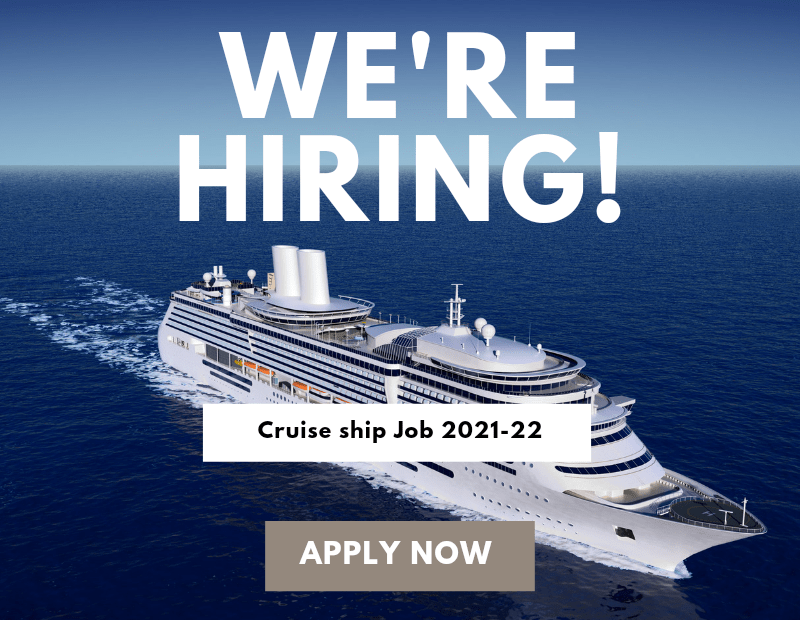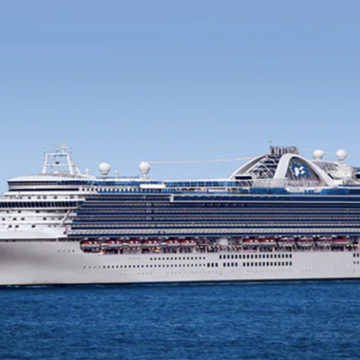
The coronavirus onboard Diamond Princess caused a major disruption for the cruise line and its passengers. This virus has made it even more critical for employees and the company to sanitize cruise ships.
The cruise line has created a plan to ensure the safety of all its ships. The company has also developed new health protocols to address the outbreak.
Princess Cruises increased its cleaning and disinfection practices during the norovirus epidemic in Galveston Texas. They also notified passengers about the situation and took stool samples from infected passengers to send to the CDC. This was done in order to allow the CDC to track the outbreak live and prevent it happening again.
The Japan government quarantined the Diamond Princess 14 days after it was confirmed that the Diamond Princess had contracted the illness. Once the quarantine period was complete, the Japanese government deemed it safe to resume sailing.

Belfor Property Restoration took almost a month to completely clean the 18 decks, 1300 rooms, and common areas after the Diamond Princess was quarantined. This cleaning is called a level three clean and is the most thorough in the industry according to BELFOR.
This was a heavy-duty surface disinfection, and it was performed by DuPont Personal Protection, RecoveryPRO and BELFOR Group. The companies collaborated to disinfect the Diamond Princess and they followed protocols established by international safety and health organizations, including the Japan Ministry of Health and Labour and Welfare.
The disinfection process also required extensive training for both the workers and the Princess Cruises team. The company devised a sanitization strategy that included disinfecting high touch surfaces such as railings and door handles, encouraging passengers to use the in-cabin bathroom facilities, hand sanitizer, and treating any sick guests until they are completely healed.
Norovirus is a sticky virus that is difficult to eradicate. The virus can attach to surfaces and objects on ships and cause damage. According to the CDC disinfecting high-traffic areas (e.g., gangway rails, stairs, elevators) takes typically two hours.
The company has improved its sanitization procedures, and is working together with health specialists to create new protocols. These include thermal scans and free-flowing hand sanitizer.

It is a good idea take your cruiseboat out of the marina to clean it. This helps prevent a bacterial buildup in your ship's hull, which can cause leaks and other problems.
In addition to sanitizing your vessel, you can keep it looking its best by scheduling underwater hull cleanings every few months. These can be done at the dock or at sea depending on how often your ship is used.
Visit the American Cleaning Services Association website to locate a cruise ship cleaning service near you. The Association is an independent trade organization representing more than 300 cleaning service providers throughout the United States.
FAQ
Are cruise ships safe?
Yes, cruise ships are very safe places to travel. The majority of cruise ships are outfitted with the most advanced technology and security systems. Cruise ships must also comply with strict safety standards. Crew members must undergo extensive training and pass background checks. Onboard, passengers undergo background checks. Some cruise lines require passengers' proof of immunization against certain diseases. Contact the customer service department of your cruise line immediately if you have any concerns about your safety onboard.
Can I bring my pet with me?
Most cruise lines allow pets traveling on board. However, there are limitations. You must ensure that your pet is healthy enough for travel. Pets who are too sick or unable to travel should not be allowed on board. Secondly, you cannot bring any animals on board unless they are service dogs. Service dogs are trained for disabled persons. You can't bring any type or dangerous animal to board.
Can you take a cruise without a passport?
A passport is essential for anyone who wants to travel around the globe. You can travel to any country with a passport without needing a visa or other paperwork.
In some countries, you may not be allowed to enter if your passport isn't valid. It also lets you stay longer when traveling abroad.
When should I book my cruise?
It depends on which part of the world you are traveling to. Generally speaking, it is better to book your cruise first because this gives you more flexibility in terms of dates. A cruise could be planned around summer months in Europe, for instance. On the other hand, if you are going to Asia or South America, you might want to book your cruise later to avoid high season prices.
Is there something else I should learn before I go on a vacation?
Before you take your first cruise, you need to know a lot of things. First, you should remember that you will be traveling alongside other people. Do not be harsh about these people. You will never know how they feel about a situation. Be aware that you will likely be eating with strangers. Wear appropriate clothing. Do not wear shorts or tank tops on deck. Comfortable clothing will not cause you to get dirty. Keep yourself ready for extreme temperatures. Sunscreens are essential. If you plan to spend some time outdoors, be sure to pack a hat with sunglasses and a light jacket. Don't forget to take responsibility for your safety. Don't drink-drive!
Where do cruises actually start?
Miami, Florida is the main destination for cruise vacations. Because it is home to both international airports as well as ports, cruises depart from Miami. These two locations enable passengers to travel throughout South America and Europe.
Do I need to tip my Cruise Director?
This varies from cruise line to cruise line. Some cruise directors are paid tips while others receive no tipping. It is best to ask your Cruise Director before you board the ship to find out if they expect tips. They will often tell you if tips are expected.
Statistics
- *20% Gratuities Apply on Free Unlimited Open Bar; Free Specialty Dining. (ncl.com)
- You'll need to budget around $80 per person per day for this option – and an additional 18% gratuity. (travel.usnews.com)
- The line estimates savings of 50% when you purchase this bundle. (travel.usnews.com)
- For an example of savings, Royal Caribbean offers up to a 40% discount with a dining package. (travel.usnews.com)
External Links
How To
How to stay safe while on a cruise ship
Before embarking on your cruise ship journey, there are many important things you should know. So that you don't get in trouble, it is important to know how to behave aboard. Here are some safety tips that will help you enjoy your trip.
-
At all times, be aware of your surroundings. On board a cruise ship, people tend to congregate together, especially during meals. It's easy to become distracted from your duties because you're surrounded by people who want to chat and eat. This should not distract from what you are supposed do. If you notice someone engaging in dangerous behavior, such as smoking, or drinking alcohol, politely tell them to stop.
-
Keep your room keys close to your body when you board a ship. When you get onboard, hand your key over to the person checking you in. You'll be easily found if something happens. Your passport is also important.
-
Keep valuables out-of-reach Many cabins have drawers underneath the bed. You can store important documents such as passports and credit cards. Also, make sure nothing valuable is visible in plain view. Keep your bags hidden in the closet.
-
Keep hydrated. While cruise ships have plenty of water, sometimes it can be difficult for passengers to remember to drink enough. Use the free bottled water that is available onboard. Keep yourself hydrated. Dehydration makes you tired and cranky, leading to fights or accidents.
-
Attention to announcements. Announcements can be found everywhere including on television screens and on public address systems. They include safety procedures as well emergency exits and even weather reports. These announcements will be of great importance. They might save your life!
-
Lock your cabin door before you leave it. No matter how helpful a crew member appears, you should never leave your cabin unlocked. Many thieves break into cabins by stealing the doors. If you need to use the restroom, ask a crew member for permission first.
-
Avoid going too far. It may take time for the crew of the ship to rescue you if you fall overboard. In the meantime, sharks and other sea creatures may be attracted to your body. You should wait until help arrives.
-
You should not smoke in an elevator. These elevators are pressurized and smoke can build up quickly. If you feel dizzy and lightheaded, it is best to get out immediately. It doesn't necessarily mean that breathing is safe, even though the outside air is clean.
-
Know how to evacuate. Every year, many people die in elevators. Follow the screen instructions in case of an emergency.
-
You should be familiar with fire drills. Fire drills take place regularly, almost every day. Everyone on the deck must evacuate during a drill. Follow the instructions given by crew members. After the drill is completed, return to your cabin and lock it.
-
Before accepting food or drinks, ask questions. Cruisers can get food poisoning. Many people don't realize that certain foods aren't safe to eat while onboard a ship. Most cruise ships prohibit raw oysters. If you are unsure about the safety of the food, refuse to eat it and ask for another one.
-
Be careful when using the pool. Inadvertently falling into pools has been a frequent occurrence. You should not fall into the pools unless someone spots you. It is possible to slip and tumble on the deck at any given moment. So always wear proper footwear and pay attention to your surroundings.